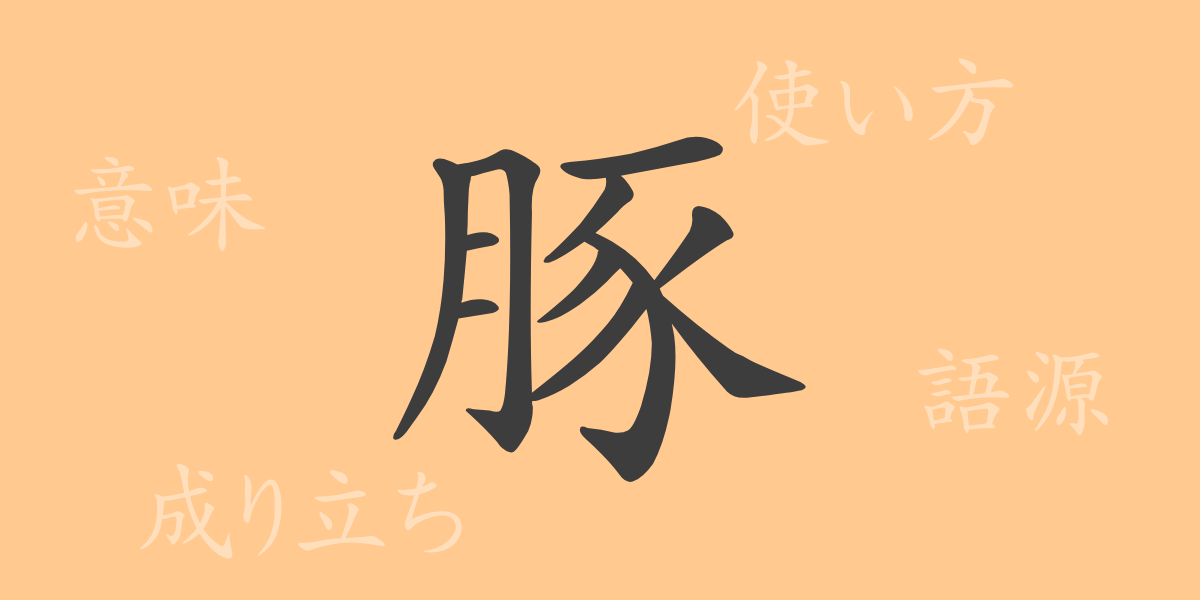The Kanji ‘豚 (ぶた)’ holds more charm than just denoting an animal. While it might seem merely a name for an animal, ‘豚’ embodies a rich history, meanings, and cultural backgrounds. In this article, we delve into the origins of ‘豚’, explore its meanings and usages, pronunciation and number of strokes, and even how it fits into idioms and proverbs in Japanese. Let’s explore the hidden knowledge and allure behind the character ‘豚’.
Origins of ‘豚 (ぶた)’
The Kanji ‘豚’ originates from ancient Chinese pictographs. Its original form depicted a pig’s head and body, evolving over time into its present form. When this Kanji was adopted in Japan, it retained the character ‘豚’, while incorporating unique Japanese readings and meanings.
Meaning and Usage of ‘豚 (ぶた)’
‘豚’ generally refers to the pig as a mammal but reflects aspects of food culture and lifestyle, being used for both culinary terms and metaphorical expressions. For example, ‘豚肉 (ぶたにく)’ refers to pork, and the proverb ‘豚に真珠 (ぶたにしんじゅ)’ implies that giving valuable things to those who can’t appreciate them is futile.
Pronunciation, Stroke Count, and Radical of ‘豚 (ぶた)’
The Kanji ‘豚’ has several distinctive features:
- Reading: On’yomi ‘トン’, Kun’yomi ‘ぶた’
- Stroke Count: 11 strokes in total
- Radical: 豕 (しし)
Phrases, Idioms, and Proverbs Using ‘豚 (ぶた)’
There are numerous idioms and proverbs involving ‘豚’. ‘豚に真珠’ has already been mentioned. Another expression, ‘豚耳に念仏 (ぶたみみにねんぶつ)’, illustrates the futility of offering advice to someone incapable of understanding it, emphasizing how the characteristics attributed to pigs symbolically represent various aspects of human society.
Conclusion on ‘豚 (ぶた)’
The Kanji ‘豚’ holds far more depth and history than its simple appearance might suggest. It has played a significant role in Japanese language, from food culture to proverbs. Through this article, we hope you’ve gained an insight into the multifaceted nature and cultural background of ‘豚’. Each word we use daily hides such rich stories, reminding us of the profound layers hidden within our language.

























